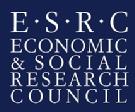ESRC DTC collaborative award
The Economic and Social Research Council Doctoral Training Centre at the University of Warwick is now inviting applications for an ESRC Doctoral  Studentship in association with our collaborative partner North Bristol NHS Trust and the PROMPT Maternity Foundation, to commence in October 2016.
Studentship in association with our collaborative partner North Bristol NHS Trust and the PROMPT Maternity Foundation, to commence in October 2016.
To apply, please click here.
ESRC Collaborative Doctoral Award: Teamwork in Real-life obstetric emergencies
This ESRC-funded collaborative PhD is part of a wider project that aims to identify what makes ad hoc maternity teams effective. In 2000 the UK Department of Health identified an urgent need to improve safety in healthcare, particularly in obstetrics. They reported that errors occurred frequently and were often recurrent. Obstetrics is one of the areas where such errors can have devastating consequences for two lives at once: mothers and their babies. National enquiries into suboptimal outcomes (CEMACH, CESDI, King’s Fund) have identified common and avoidable errors in more than half the cases; among which poor inter-professional communication. Dr Jo Angouri, Dr Dimitrios Siassakos and Professor Tim Draycott (Head of the Academic Centre for Women’s Health in Bristol) have been collaborating on the analysis of obstetric emergencies drawing on simulation, patient actor and focus group data since 2009. This project is concerned with what actually happens in real life emergencies. It addresses a major gap in the literature and is expected to feed directly into health care linguistic studies and methodology, teamwork literature and medical training with a particular focus on maternity care. It is the first ethnographic study of this kind in the UK and will inform the training of many medical teams. Hence the findings of the work will make a significant impact to both patient safety and medical staff development.
In this context, the proposed PhD will address the following questions:
1. What are the characteristics of effective teamwork as identified by clinicians and patients in the context of actual (real-life) maternity emergencies?
2. What is the relationship between: a) clinical assessment of actual emergencies (to be handled by Dr Siassakos’s team); b) analysis of real life discourse data from the same emergencies.
The supervisors for the PhD are Dr Jo Angouri ( Warwick Applied Linguistics) and Dr Dimitris Siassakos (North Bristol Trust). The research involves close working with Professor Tim Draycott (Head of the Academic Centre for Women’s Health in Bristol) and maternity teams. The proposed collaboration is unique in the UK and amongst the few in the world. The established relationship between the partners provides an excellent platform for well-coordinated joint supervision and robust support of a junior scholar. The student will be part of a growing and ambitious team and their work will result in a PhD thesis and participation in publications and dissemination activities. This project is for a four year studentship to allow enough time for the student to familiarise themselves with the topic area and context and meet any training needs under the provided DTC training. We expect to recruit a student who can show they have already covered Research Methodology training but the four year scheme allows any emergent or remaining training needs to be addressed. We also anticipate that the student will hold a degree and ideally postgraduate qualification in (Socio)Linguistics/Communication/Healthcare or another relevant discipline and has strong interest or experience in health care research. Research nurses/midwives/other health professionals with social science qualifications are encouraged to apply. The student is expected to have knowledge of discourse analysis and can demonstrate experience in transcribing and analysing spoken data using appropriate methods for Interaction Analysis. It is expected that the student will be based in Bristol during the time of the data collection or within commuting distance. The rest of the time the student is expected to be at the University of Warwick.
Applications must be submitted by Friday 29th April 2016 and interviews will take place soon after
The ESRC Doctoral Training Centre at the University of Warwick, one of 21 such centres in the UK, embodies the University’s commitment to producing the next generation of leaders in social science research. The studentship covers fees and maintenance stipend and extensive support for research training, as well as research activity support grants.
To apply for the studentship, please submit:
1. A covering letter of no more than two pages, outlining your suitability for this Doctoral Studentship, and giving details of any current/past research (e.g. your Masters or BA dissertation), any research training, research skills you have had and your research interests.
2. A Case for Support of up to 1000 words. This should outline the key (sub)questions you would wish to explore, the particular aspects of this project you are more interested in and include a short bibliography.
3. A full C.V.
4. Two references. These can be the same as for your PhD application and should be sent directly to Heather Stevenson by the referee at H.Stevenson.1@warwick.ac.uk
A full proposal will be shaped further with direction and guidance from the supervisors once the successful candidate joins the programme.
For queries relating to the application procedure or the studentship, please email J.Angouri@warwick.ac.uk
